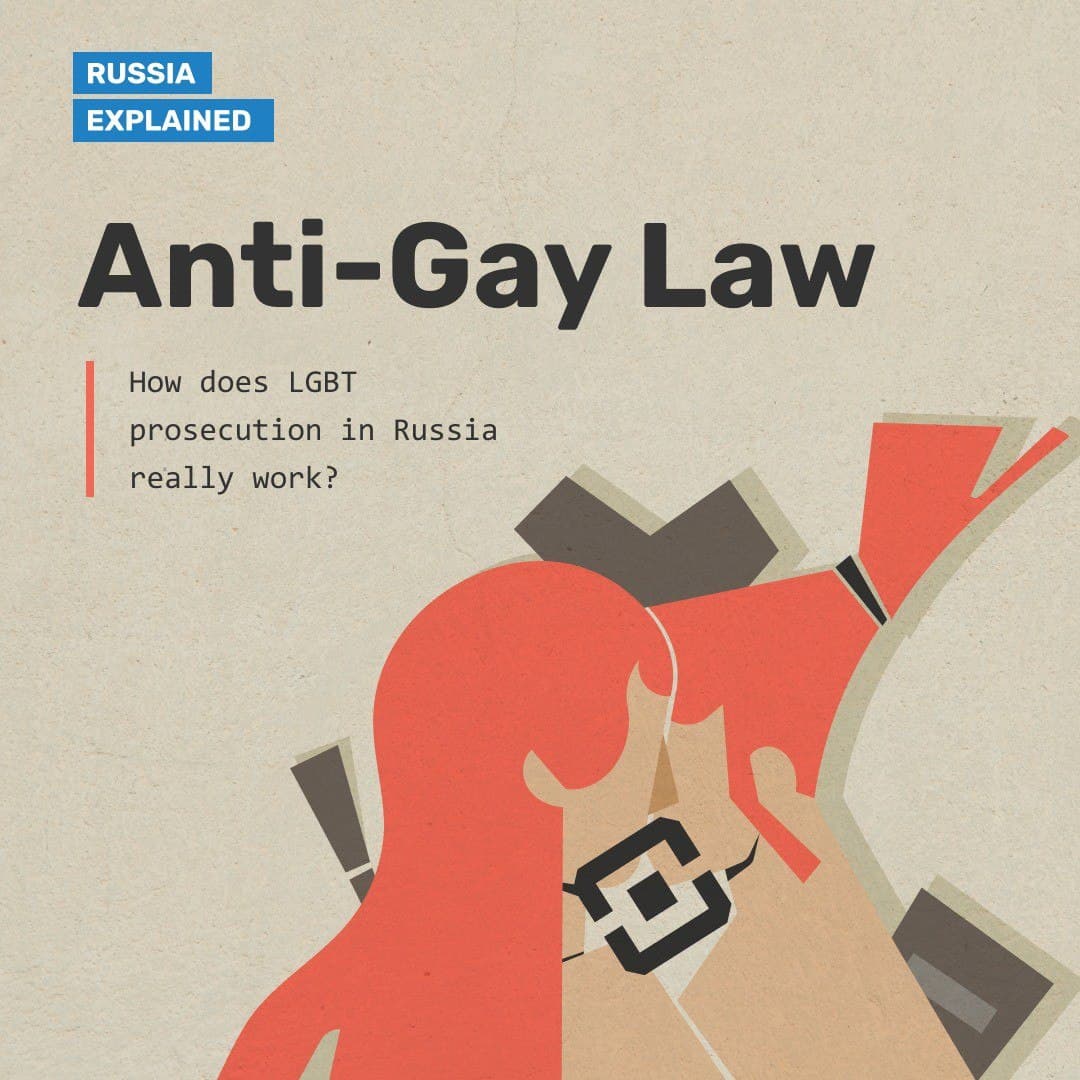How All of Russian TV Became State-Controlled
Short biography of the freedom that never happened.



In January 2023, Russia added Meduza, the country’s leading independent media outlet, to its list of ‘undesirable’ organisations. Later, in March, the global anti-corruption watchdog Transparency International was also labelled as ‘undesirable.’ They are not the first ones — and most likely not the last.
According to the law, which came into force in 2015 as a follow-up to the Russian foreign agent law, ‘undesirable’ organisations are those posing a threat to the foundation of the constitutional order of the Russian Federation, the defence capability of the country, or the security of the state.
‘Undesirable’ is a more severe term than ‘foreign agent.’ While ‘foreign agents’ can keep functioning, albeit with burdensome restrictions, ‘undesirable’ organisations are required to cease their activities in Russia.
Moreover, Russian citizens and legal entities are not allowed to cooperate with such organisations, either on or off the territory of Russia. A website that distributes information materials of an ‘undesirable’ organisation may be blocked, and people that participate in the activities of ‘undesirable’ groups may be criminally prosecuted and subjected to high fines and significant jail time.
Initially, the law was used to crack down on foreign and international NGOs, mainly those receiving funding from the United States and Europe. In 2021, however, Russian authorities started to use this ‘weapon’ against independent media outlets, labelling them as ‘undesirable’ and forcing them to suspend their activities.
The first news organisation to suffer this fate was The Project (Proekt Media), a media outlet publishing well-researched, unflattering, and sometimes embarrassing investigations into Russia’s ruling elite. Later, in 2022, the authorities placed on the ‘undesirable’ list investigative news outlets iStories, The Insider, and Dutch-based Bellingcat.
Overall, 22 organisations of various types were recognised as ‘undesirable’ in 2022. Also, Russian political activist and ex-head of the pro-democratic opposition movement Open Russia Andrei Pivovarov was found guilty of ‘carrying out activities of an undesirable organisation’ and sentenced to four years in prison.
In 2023, Russian authorities designated the independent news outlet Meduza an ‘undesirable’ organisation, effectively outlawing the site from operating in Russia and banning any Russian from cooperating with Meduza or its journalists.
While Meduza and other ‘undesirable’ media outlets keep working from abroad, it has become way more difficult for them to distribute their materials, cooperate with speakers and find new heroes in Russia, as well as receive donations from their readers.
Their ‘undesirable’ status poses legal risks to Russian citizens, both inside and outside the country, who participate in their activities. Sharing hyperlinks to their materials on various platforms, giving comments to their correspondents, or donating to help finance their operations may lead to criminal prosecution by the state. For Russians living abroad, this means the risk of losing the opportunity to travel to their homeland. For those residing in Russia, this means the risk of going to jail.
Declaring Meduza ‘undesirable’ also seems like a warning to all other Russian independent journalists. After Meduza was labeled a ‘foreign agent’ in 2021, the authorities proceeded to label other news organisations, including the leading independent television channel TV Rain (Dozhd) and the renowned investigative newspaper Novaya Gazeta. Repeating this situation, this time with the label ‘undesirable,’ is likely to lead to much more dramatic consequences.
Dieser Artikel wurde noch nicht ins Deutsche übersetzt. Wir suchen nach Freiwilligen, die uns dabei helfen können.
Short biography of the freedom that never happened.

Russia is seizing the control of academic freedoms of both private and public universities. How does this work? Has any school remained free?

Wie das russische Regime für traditionelle Werte kämpft

Unsere Medienplattform würde ohne unser internationales Freiwilligenteam nicht existieren. Möchten Sie eine_r davon werden? Hier ist die Liste der derzeit offenen Stellen:
Gibt es eine andere Art wie Sie uns unterstützen möchten? Lassen Sie es uns wissen:
Wir berichten über die aktuellen Probleme Russlands und seiner Menschen, die sich gegen den Krieg und für die Demokratie einsetzen. Wir bemühen uns, unsere Inhalte für das europäische Publikum so zugänglich wie möglich zu machen.
Möchten Sie an den Inhalten von Russen gegen den Krieg mitwirken?
Wir wollen die Menschen aus Russland, die für Frieden und Demokratie stehen, gehört werden lassen. Wir veröffentlichen ihre Geschichten und interviewen sie im Projekt Fragen Sie einen Russen.
Sind Sie eine Person aus Russland oder kennen Sie jemanden, der seine Geschichte erzählen möchte? Bitte kontaktieren Sie uns. Ihre Erfahrungen werden den Menschen helfen zu verstehen, wie Russland funktioniert.
Wir können Ihre Erfahrungen anonym veröffentlichen.
Unser Projekt wird von internationalen Freiwilligen betrieben - kein einziges Mitglied des Teams wird in jeglicher Weise bezahlt. Das Projekt hat jedoch laufende Kosten: Hosting, Domains, Abonnements für kostenpflichtige Online-Dienste (wie Midjourney oder Fillout.com) und Werbung.




Russland hat den Krieg gegen die Ukraine angefangen. Dieser Krieg dauert schon seit 2014 an. Er hat sich seit 24. Februar 2022 nur noch verschärft. Millionen von Ukrainern leiden. Die Schuldigen müssen für ihre Verbrechen zur Rechenschaft gezogen werden.
Das russische Regime versucht, die liberalen Stimmen zum Schweigen zu bringen. Es gibt russische Menschen, die gegen den Krieg sind - und das russische Regime versucht alles, um sie zum Schweigen zu bringen. Wir wollen das verhindern und ihren Stimmen Gehör verschaffen.
**Die russischen liberalen Initiativen sind für die europäische Öffentlichkeit bisweilen schwer zu verstehen. Der rechtliche, soziale und historische Kontext in Russland ist nicht immer klar. Wir wollen Informationen austauschen, Brücken bauen und das liberale Russland mit dem Westen verbinden.
Wir glauben an den Dialog, nicht an die Isolation. Die oppositionellen Kräfte in Russland werden ohne die Unterstützung der demokratischen Welt nichts verändern können. Wir glauben auch, dass der Dialog in beide Richtungen gehen sollte.
Die Wahl liegt bei Ihnen. Wir verstehen die Wut über die Verbrechen Russlands. Es liegt an Ihnen, ob Sie auf das russische Volk hören wollen, das sich dagegen wehrt.